Why School Medication Safety Starts With You
Every morning, thousands of children swallow pills, use inhalers, or get injections while at school. These aren’t optional treatments-they’re lifelines. For kids with asthma, diabetes, epilepsy, or ADHD, missing a dose can mean a trip to the ER, a seizure, or a day lost to illness. But here’s the truth: schools don’t give out medication on a hunch. Every pill, spray, or patch handed to your child during school hours follows strict rules-and those rules depend on you.
What You Must Do Before the First Day
Don’t wait until the first week of school to figure out how to get your child’s medication approved. Most districts, including New York City Public Schools, require forms to be submitted by June 1 for the next school year. Why? Because processing takes time. Nurses need to review prescriptions, coordinate with doctors, and train staff. If you delay, your child might go without medication for days or even weeks.
Here’s what you need to complete:
- A Physician/Parent Authorization Form signed by both your child’s doctor and you. This isn’t optional. Schools won’t accept a prescription bottle alone-even if it has your child’s name on it.
- The doctor’s order must include: your child’s full name, exact medication name, dosage, route (swallowed, inhaled, injected), timing (e.g., “9 a.m.,” “as needed”), duration of treatment, possible side effects, and special instructions like “take with food.”
- For long-term meds (30+ days), you’ll also need a separate parent consent form for ongoing administration.
Doctors often forget to include license numbers on orders. In New York State, that’s required. If the form is missing it, the school will send it back. Save yourself the back-and-forth by double-checking before you sign.
How to Deliver Medication-The Right Way
Never let your child bring medication to school. Not even if they’re in 8th grade and “responsible.”
Every district requires that you, the parent or guardian, personally drop off all medications. This isn’t bureaucracy-it’s safety. A 2023 study by the National Association of School Nurses found that 42% of medication errors happened because forms were incomplete or because students brought the wrong pill.
When you drop off the meds:
- Use the original, unopened, manufacturer-labeled container. No Ziploc bags. No pill organizers. No repackaged bottles.
- Check the expiration date. Schools won’t keep expired meds.
- Make sure the label matches the doctor’s order exactly.
- Sign the receipt with the school nurse. Both you and the nurse must sign off on what was delivered.
Allow at least 15 minutes for this process. Rushing leads to mistakes. If your child needs an inhaler for asthma, make sure it’s the exact brand and dose prescribed-NYC schools only provide free inhalers if they’re on file and properly documented.
When Medication Can Be Given-And When It Can’t
Medication timing matters. A 10-minute delay might not seem like much, but for insulin or seizure meds, it can be dangerous.
According to the American Academy of Pediatrics (2024), most medications can be given within a 30-minute window before or after the scheduled time-unless the doctor says otherwise. For example:
- Insulin for diabetes: must be given within 15 minutes of a meal. No flexibility.
- ADHD meds: often need to be given before lunch to avoid appetite suppression at dinner.
- Antibiotics: must be spaced evenly-every 8 or 12 hours. If school hours don’t align, talk to your doctor about adjusting the schedule.
Some states, like California, require students to demonstrate they can safely self-administer. That means a nurse watches them use their inhaler or inject insulin before letting them do it alone. New York allows self-administration too-but only if both you and the doctor sign a special release form.
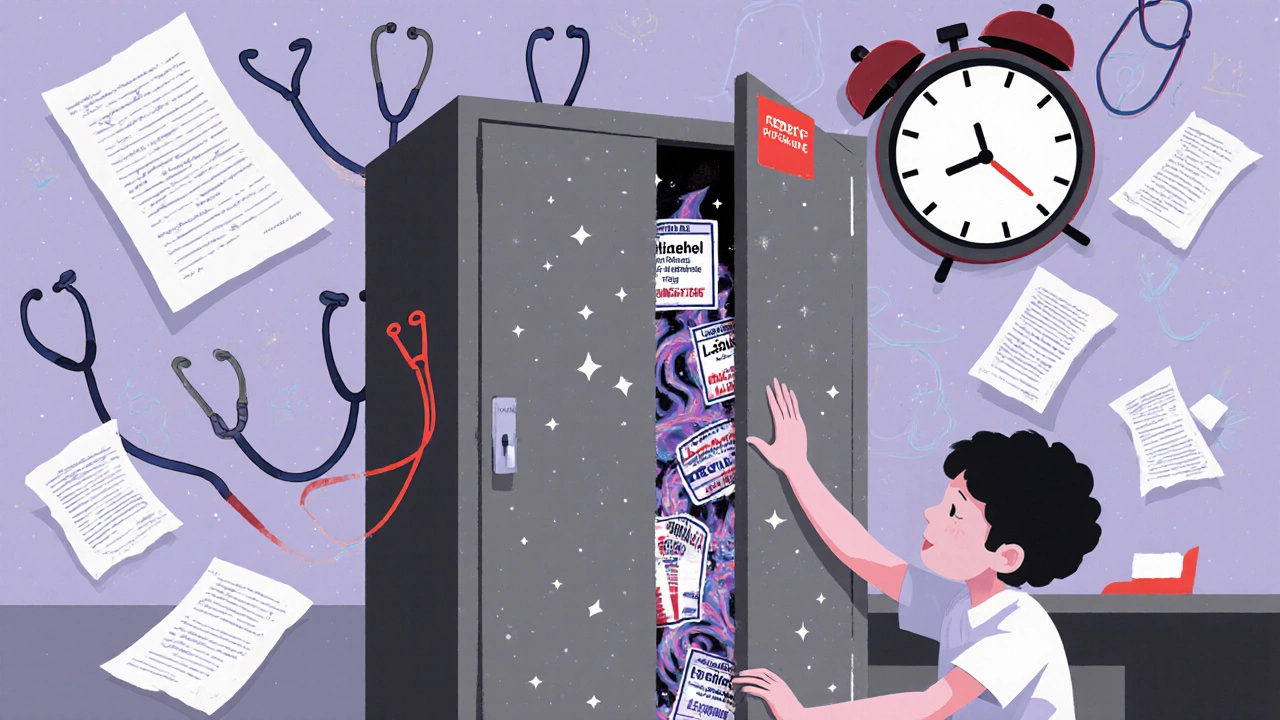
What Happens If Your Child Refuses?
It happens. Kids get scared. They feel different. They don’t want to be singled out. One in five students with chronic conditions skip doses at school, according to school nurse surveys.
When a child refuses medication, the school nurse must contact you immediately. You’ll need to decide: do you want them to take it now? Should they go home? Do they need to talk to a counselor?
Don’t assume your child will “get over it.” Talk to them early. Explain why the medicine matters-not in medical terms, but in ways they understand. “This inhaler helps you run without coughing.” “This pill keeps your blood sugar from crashing during math class.”
Experts say kids who understand their own treatment miss 32% fewer doses. That’s not magic. It’s partnership.
Storage and Security-It’s Not Just a Fridge
Medications aren’t kept in a desk drawer or a teacher’s purse. They’re locked up.
Refrigerated meds-like insulin, some biologics, or epinephrine auto-injectors-must be stored between 2°C and 8°C (36-46°F) in a dedicated unit. No sharing with lunch leftovers. No storing in a classroom fridge.
All other medications go into a locked cabinet, accessible only to trained staff. Electronic medication records (eMARs) are now used in 89% of public schools. These systems track who gave what, when, and by whom-cutting documentation errors by over half.
And yes, schools are required to keep these records for at least three years. If there’s ever a question later, they can prove they followed protocol.
Changes Happen-Tell the School Immediately
Your child’s dose goes up? They start a new medication? They had a bad reaction? You see a rash after lunch? You need to call the school nurse the same day.
Failure to update the school is one of the top three causes of medication errors. The National Association of School Nurses reports that 18% of incidents happen because the school was working with outdated information.
Don’t wait for the next parent-teacher meeting. Don’t assume the doctor told them. Call. Email. Text. Get confirmation that the change was logged. Keep a copy of the new prescription for your records.
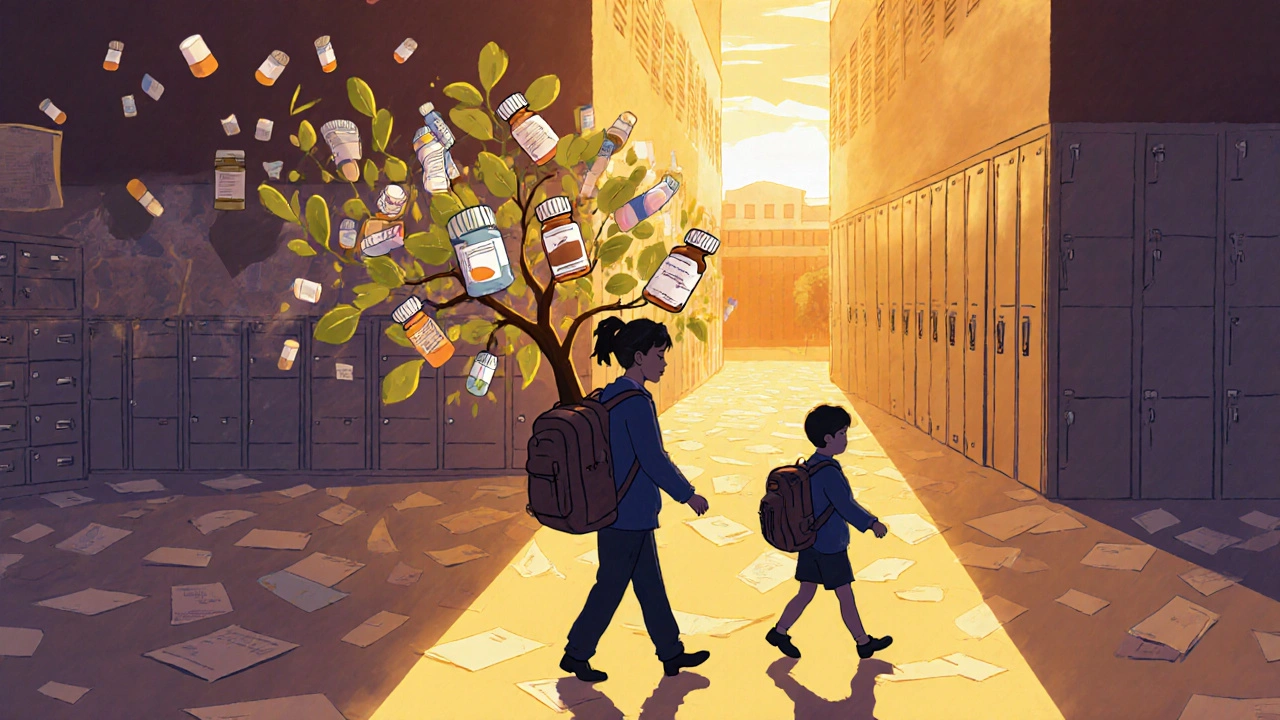
End of the Year? Clean It Up
When the school year ends, you must pick up all unused medication. No exceptions.
Frederick County Schools and New York State both require parents to collect meds by August 31. Anything left behind gets destroyed. No storing over summer. No saving for next year.
Why? Because medications degrade. Labels fade. Pills get mixed up. Schools aren’t pharmacies. They’re schools.
Take your child with you to pick up their meds. Use it as a teachable moment: “This is your medicine. You’re responsible for it now.”
What’s Changing in the Next Few Years
More kids need meds now than ever before. The National Association of School Nurses predicts a 22% rise in students requiring school-administered drugs by 2028, mostly because of rising mental health conditions and autoimmune disorders.
Some schools are testing new tools:
- Apps that text you when your child takes their pill-used in California pilot programs, they cut parent questions by 27%.
- Digital forms that auto-fill across districts, expected to roll out statewide by 2026.
- Biometric checks (like fingerprint scans) to make sure the right kid gets the right pill-coming by 2028.
These aren’t sci-fi. They’re practical fixes for real problems.
What You Can Do Today
Start now. Don’t wait for the school to remind you. Here’s your checklist:
- Call your child’s doctor and ask: “Can you complete the school medication form with all required details?”
- Print and fill out the parent consent form. Sign it. Don’t skip anything.
- Double-check the medication label. Does it match the doctor’s order? Is it unexpired?
- Drop off meds in person before the first day. Don’t send them with your child.
- Have a calm talk with your child about why they need their medicine at school.
- Update the school immediately if anything changes-dose, side effect, schedule.
- Collect all meds before August 31.
These aren’t just rules. They’re protections. For your child. For the school. For you.
What If the School Says No?
Some parents get told their child’s medication can’t be given. Maybe it’s a new drug. Maybe the nurse is overworked. Maybe the form is missing a signature.
That doesn’t mean “no.” It means “not yet.”
Ask: “What’s missing?” “Who do I talk to?” “Can I schedule a meeting with the school nurse and my doctor?”
The U.S. Department of Education’s Office for Civil Rights has handled over 120 complaints in the last five years about schools failing to administer prescribed meds. You have rights. Schools have responsibilities. Work together. Don’t walk away.
Can my child carry their own inhaler or epinephrine pen at school?
Yes-but only if both you and your child’s doctor sign a special permission form. Schools in New York and California allow this for asthma and severe allergy meds, but only after the student demonstrates they know how to use it correctly under supervision. Never assume your child can carry it without paperwork.
What if my child’s medication is expired?
The school will not accept it. Expired medication can lose effectiveness or become unsafe. Replace it before school starts. Many pharmacies offer free or low-cost replacements for children’s prescriptions. Ask your doctor for a new prescription if needed.
Do I need to refill my child’s prescription every year?
Yes. Most states require annual renewal of medication orders for school use. Even if your child’s prescription is valid for two years, the school needs a current, signed order from the doctor each year. Don’t wait until the last minute-some doctors take weeks to respond to requests.
Can the school give my child over-the-counter medicine like ibuprofen?
Only if you provide a signed authorization form and the medicine is in its original packaging. Even common pain relievers like ibuprofen or acetaminophen require parent and doctor approval. Schools can’t give them based on a note from a parent alone.
What happens if my child has a bad reaction at school?
The school nurse will follow emergency protocols, which may include calling 911 or using an epinephrine auto-injector if needed. They’ll also notify you immediately. Afterward, you must update the medication form with the reaction details. This helps prevent future incidents and ensures staff know how to respond.
Is there financial help if I can’t afford my child’s school medication?
Some school districts offer free inhalers or epinephrine pens for students with documented need, like NYC Public Schools. You can also ask your doctor about patient assistance programs from drug manufacturers. Many pharmaceutical companies provide free or low-cost medications to families who qualify based on income.

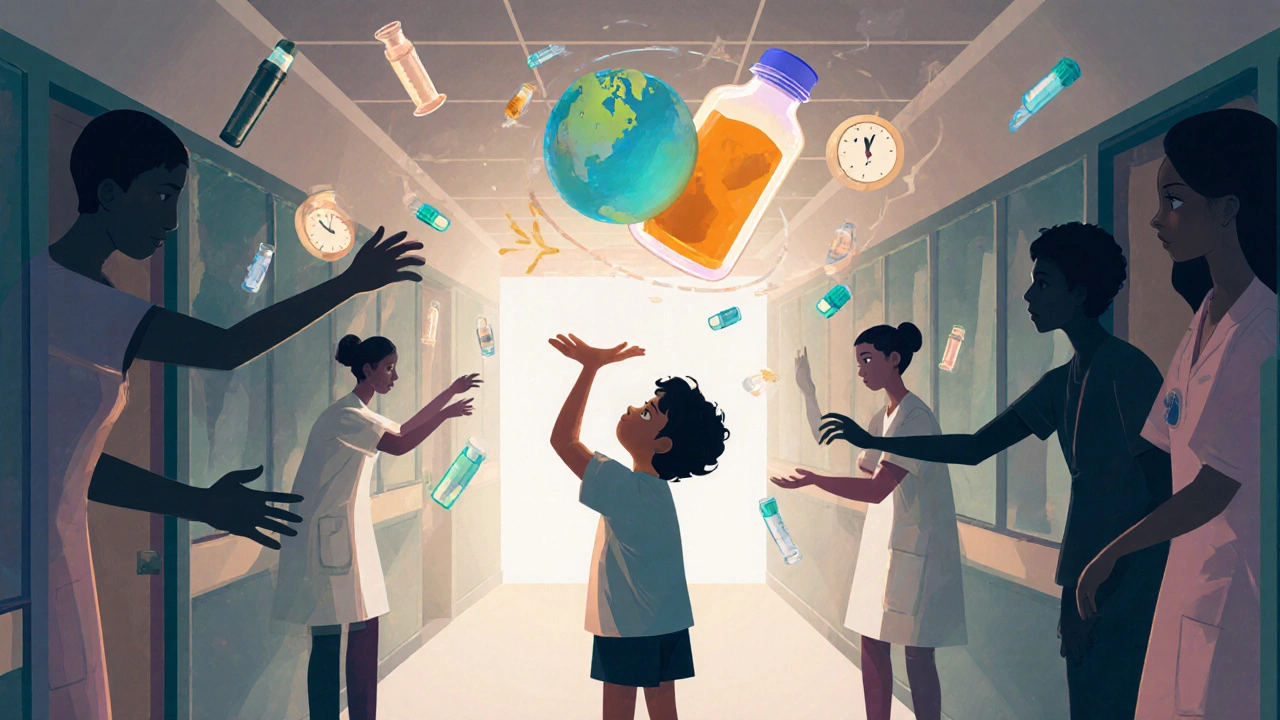
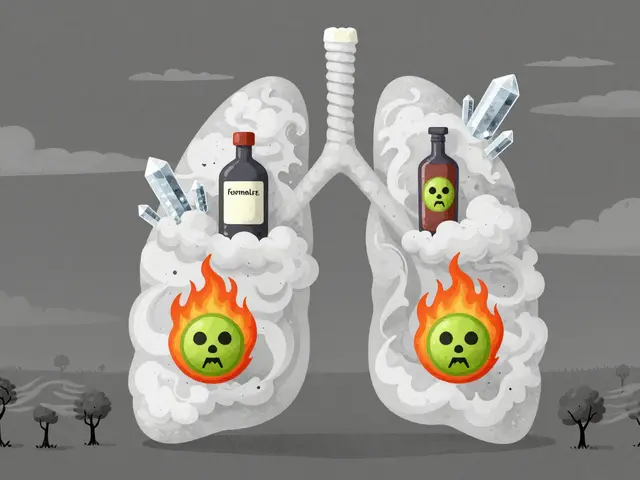
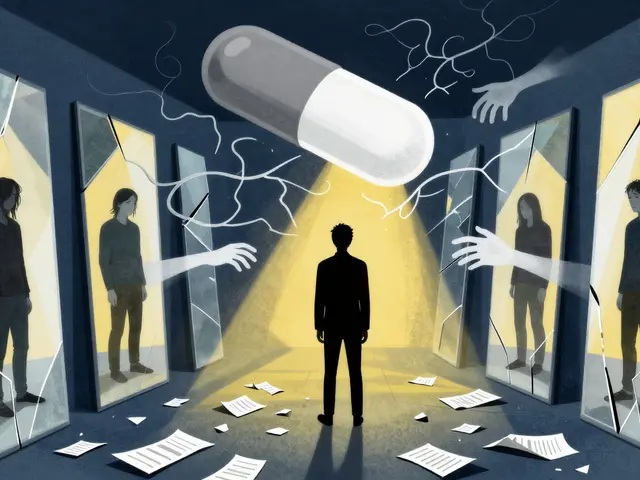
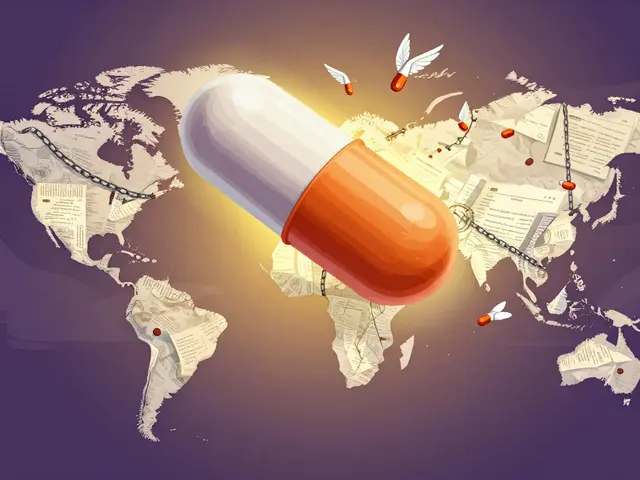
Anne Nylander
November 20, 2025 AT 17:27OMG this is so needed!! I just realized my kid’s inhaler form was missing the doctor’s license number and they almost didn’t get it on day one 😱 Thanks for spelling it out so clearly. I’m printing this and taping it to my fridge!
Franck Emma
November 21, 2025 AT 18:31Schools are turning into pharmacies. Next they’ll be giving out antidepressants during recess.
Noah Fitzsimmons
November 22, 2025 AT 00:59Oh wow, you actually read the whole thing? Congrats. Most parents just scribble their name and hand over a Ziploc bag with 12 different pills labeled ‘Billy’s Stuff.’
Eliza Oakes
November 23, 2025 AT 02:22Wait, so now we’re supposed to trust schools with our kids’ meds but not let them carry their own inhalers? Sounds like a government control scheme to me. What’s next? Mandatory biometric scans before lunch?
Clifford Temple
November 24, 2025 AT 09:21This is why America’s falling apart. First they take your guns, then they take your kids’ medicine decisions. Next thing you know, the feds will be deciding if your child needs insulin or not. Wake up, people.
Corra Hathaway
November 26, 2025 AT 02:23You got this, parents!! 🙌 Seriously, taking 15 minutes to drop off meds properly? That’s love in action. And yes, I’m crying a little. 💙 Let’s make sure no kid misses their dose because of paperwork chaos. You’re doing amazing!
Shawn Sakura
November 27, 2025 AT 18:14Thank you for this comprehensive guide. I have a child with severe asthma and I can attest that the process is indeed cumbersome, but absolutely necessary. I made the mistake of sending the inhaler with my son last year. He lost it. The school had to call me at 10 a.m. Please, do not underestimate the importance of proper documentation and delivery.
Swati Jain
November 28, 2025 AT 15:20Interesting framework, but you’re overlooking the systemic burden on school nurses. In India, we’ve seen similar protocols, but with 1:500 nurse-to-student ratios, even the best forms don’t help if the nurse is busy managing 12 diabetic kids and 8 seizure cases at once. The real solution? Decentralized auto-injector systems + parental accountability apps. Not just paperwork. 🚀
Julia Strothers
November 29, 2025 AT 07:37Biometric scans? Electronic records? Who’s tracking this data? Who owns it? Is the government selling this to pharmaceutical companies? My kid’s insulin usage is now a ‘data point’? This isn’t safety-it’s surveillance capitalism wrapped in a band-aid. And don’t tell me ‘it’s for their protection.’ I’ve seen what happens when bureaucracy gets a foot in the door.
Erika Sta. Maria
November 29, 2025 AT 12:53Let’s not forget: the real issue is not the forms, but the societal failure to normalize chronic illness. Why are kids ashamed to take pills? Why do we treat medical necessity like a secret? We’re teaching them to hide their bodies instead of celebrating their resilience. This isn’t about paperwork-it’s about cultural shame. And until we fix that, no form will ever be enough.
Nikhil Purohit
November 30, 2025 AT 22:43My son’s epinephrine pen got approved last year after 3 weeks of back-and-forth. The nurse was amazing, but honestly? The hardest part was talking to my 7-year-old about why he needs it. I didn’t use medical terms. I said, ‘This little pen is like your superhero cape-it stops the scary bugs from making you sick.’ He now carries it like a treasure. Thanks for reminding us that it’s not just about rules-it’s about love.